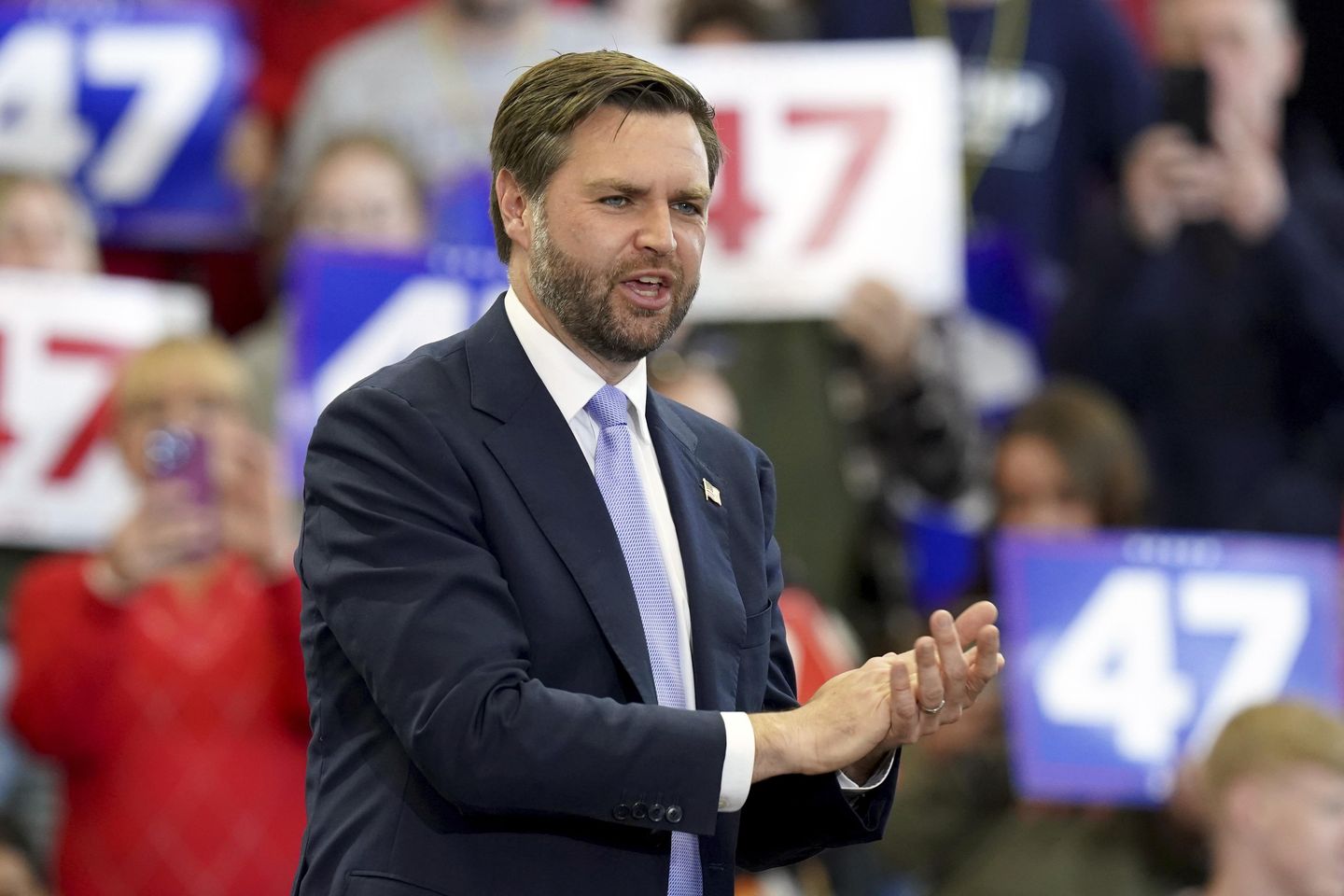In a recent interview, Republican vice presidential candidate J.D. Vance made headlines when he refused to label Russian President Vladimir Putin as an “enemy.” Instead, Vance emphasized the need for smart and strategic measures when dealing with the Kremlin.
Vance’s comments come at a time of heightened tensions between the United States and Russia, with the two countries clashing over issues such as Ukraine, cyber warfare, and human rights abuses. Many politicians and analysts have characterized Putin as a hostile actor on the world stage, citing his aggressive foreign policy and crackdown on dissent at home.
However, Vance’s remarks suggest a more nuanced approach to U.S.-Russia relations. While acknowledging the challenges posed by Putin’s regime, Vance stopped short of demonizing the Russian leader. Instead, he argued that it is important to engage with Russia in a pragmatic and realistic manner.
Vance’s stance on Russia reflects a broader debate within the Republican Party over how to approach U.S. foreign policy. While some Republicans advocate for a confrontational approach towards Russia, others, like Vance, argue for a more cautious and diplomatic approach.
Vance’s comments have drawn both praise and criticism from across the political spectrum. Supporters argue that his willingness to engage with Russia in a constructive manner shows a willingness to prioritize diplomacy over confrontation. Critics, on the other hand, accuse Vance of being too soft on Putin and failing to stand up for American values and interests.
In the interview, Vance emphasized the need for the United States to maintain a strong and assertive stance on the world stage. He argued that the U.S. should not shy away from defending its interests and values, even when dealing with adversarial powers like Russia.
At the same time, Vance stressed the importance of finding common ground with Russia on issues of mutual interest. He pointed to areas such as arms control, counterterrorism, and climate change as potential areas for cooperation between the two countries.
Vance’s approach to Russia is likely to be a key issue in the upcoming election. With tensions between the U.S. and Russia showing no signs of abating, voters will be closely watching how candidates for office address the complex and challenging relationship between the two countries.
In recent years, Russia has emerged as a major player in global politics, with its intervention in Ukraine, support for authoritarian regimes, and interference in Western elections drawing widespread condemnation. The U.S. and its allies have responded with sanctions, diplomatic pressure, and military deployments to counter Russian aggression.
Given these developments, the question of how to handle Russia has become a central issue in U.S. foreign policy. While some advocate for a tough and confrontational approach towards Moscow, others argue for a more nuanced and diplomatic strategy.
Vance’s comments on Russia are likely to further stoke the debate over U.S. foreign policy. By refusing to brand Putin as an “enemy,” Vance is challenging conventional wisdom on how to approach Russia and highlighting the need for a more nuanced and strategic approach.
As the election approaches, voters will have to weigh the candidates’ positions on Russia and other foreign policy issues. With the world facing a host of complex challenges, including the rise of authoritarian powers, the spread of terrorism, and the threat of climate change, the next vice president will play a crucial role in shaping U.S. foreign policy for years to come.
In the end, Vance’s comments on Russia may be seen as a reflection of his broader approach to foreign policy. By advocating for a pragmatic and nuanced approach to dealing with Moscow, Vance is signaling his commitment to engaging with the world in a thoughtful and strategic manner.
The upcoming election will be a crucial moment for the United States, as voters decide who will lead the country in a time of uncertainty and change. With the world facing a host of complex challenges, including the rise of authoritarian powers, the spread of terrorism, and the threat of climate change, the next vice president will play a crucial role in shaping U.S. foreign policy for years to come.
Ultimately, Vance’s comments on Russia may be seen as a reflection of his broader approach to foreign policy. By emphasizing the need for smart and strategic measures when dealing with the Kremlin, Vance is signaling his commitment to engaging with the world in a thoughtful and diplomatic manner.
As the election draws near, voters will have to consider Vance’s positions on Russia and other foreign policy issues. With the world facing a host of complex challenges, including the rise of authoritarian powers, the spread of terrorism, and the threat of climate change, the next vice president will need to navigate a complex and uncertain international landscape.
In the end, Vance’s comments on Russia may be a preview of the kind of leadership he would bring to the office of vice president. By advocating for a pragmatic and nuanced approach to dealing with Moscow, Vance is positioning himself as a candidate who is willing to engage with the world in a thoughtful and strategic manner.









